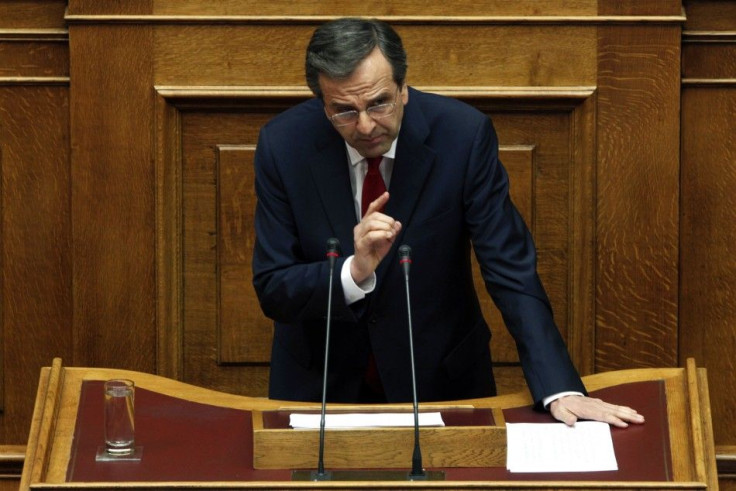Greece, Former Land Of Migrants, Now Kicks Out Those Who Come In

Greece used to be a nation of emigrants, as the large Greek communities in the U.S. and in European countries such as Germany and Great Britain attest. Now, with immigration from the East and South of the world rising, it has become a nation of immigrants, like many of its European Union colleagues. And it has turned sour on its guests, who for the most part arrive as clandestine illegals.
After rounding up over 6,000 suspected illegal immigrants over the weekend, Greek authorities announced that 1,600 will be deported.
Greek police in Athens were seen detaining people predominantly of African and Asian descent to verify their legal status in the country, most of whom were eventually released.
Greece is the main entry point for immigrants from Asia and Africa into the European Union, mostly through Turkey.
Roughly 100,000 people are estimated to enter the country illegally every year, many moving on to other countries in Europe, while some 1 million are believed to be residing in Greece, which has a population just under 11 million.
Greece has recently increased patrols along its border with Turkey amid concerns of a potential influx of refugees as people flee the deepening conflict in Syria.
With the Greek economy reeling from a prolonged recession, heavy government debt and high unemployment, and at risk of having to leave the euro zone, illegal immigration has become a political hot-button issue.
Public Order Minister Nikos Dendias defended the massive crackdown, saying that illegal immigration has brought Greece "to the brink of collapse."
"The immigration problem is maybe even bigger than the financial one," Dendias told SKAI radio Monday. "Unless we create the proper structure to handle immigration, then we will fall apart."
Greece is currently under pressure from the European Union to implement severe cutbacks in government spending as part of a €130 billion ($160.62 billion) bailout package.
The country's financial crisis is rooted in the contraction of its major industries, shipping and tourism, with government debt ballooning while GDP growth dipped into the negative.
The dire economic situation in Greece has put a spotlight on illegal immigration, which many believe is exacerbating the crisis and has made anti-immigration policies more palatable in political discourse.
Greece's far-right nationalist Golden Dawn party, once considered a political fringe group for its fervently anti-immigrant stance and described by critics as "fascists" and "neo-nazis," took nearly seven percent of the parliamentary seats in the June elections.
The party's supporters have been linked with multiple hate crimes against members of immigrant and ethnic minority communities in Greece.
The Greek parliament is currently dominated by the conservative New Democracy coalition, led by Prime Minister Antonis Samaras, a moderate.
Still, in the runup to the June elections, Samaras promised to crack down on illegal immigration.
"Greece has experienced an invasion of illegal immigrants, we shall stop it," Samaras said in a June 12 campaign speech, according to Athens News. "We are calling for the support of society to become a country of security and democracy."
Left-wing opposition groups and international rights organizations have criticized the government's stance on immigration, while the Greek office of the U.N. High Commission for Refugees has urged the government to protect the rights of those seeking political asylum.
"It is very difficult, practically impossible, for asylum seekers to apply for protected status, and we are concerned that among those arrested there may be people who want protection but were unable to submit their requests because access to the relevant authorities is practically impossible," Petros Mastakas, associate protection officer at the UNHCR office in Athens, told the Associated Press.
"People who truly need protection must be able to request it," he added.
© Copyright IBTimes 2024. All rights reserved.





















